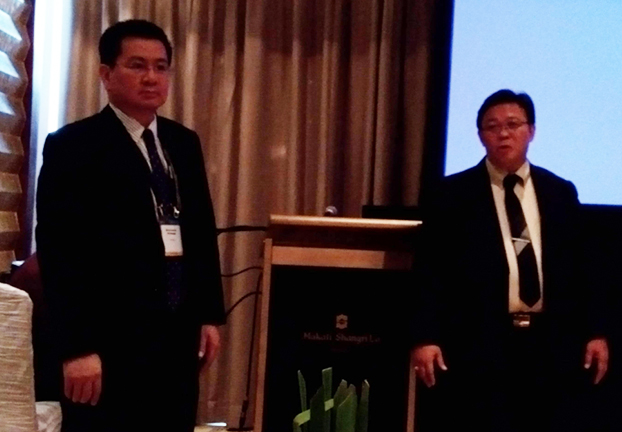The country’s flag carrier, Philippine Airlines (PAL), collaborated with cloud infrastructure provider VMWare to adopt VMWare AirWatch to create an Electronic Flight Bag (EFB) intended primarily to transform all paper-based reference materials or manuals found in PAL’s pilots’ carry-on flight bags into digital format.
EFB is an electronic display system consisting of hardware, software, applications and data said to be designed to enhance passenger safety, enable greater efficiency and cost savings, while also helping the airline meet compliance.
The transition into digital documents and manuals allows PAL’s pilots to have immediate access to digital copy of manuals, navigational charts, and other required information anywhere in the world through Wi-Fi access. With VMWare AirWatch, both PAL’s flight and on ground crew members have access to electronic information through their company-issued devices. Besides, the airline can also have all sensitive information accessed on mobile devices in a manner that is compliant with both the company’s and the aviation industry’s security policies.
“Security and reliability are critical components of our business. Moving to a secure and mobile EFB system has enabled us to fulfill both objectives. Our partnership with VMWare has helped us achieve our goal of providing safe and reliable travel for all our passengers,” said Selino Jalalon, manager, Flight Technical, Flight Operations Department of PAL. “The modular nature of VMWare AirWatch has made the transition easier which enable them to integrate all its existing platforms and IT solutions into the new environment.”
The EFB system also reduces the firm’s operational and manpower costs from recurring printing and binding. With an estimated 75 kilograms of all paper-based flight bag documents offloaded from each flight, PAL could instead explore revenue generating options such as accommodating an additional passenger or more cargo, while still staying within aviation regulations on total weight limits. PAL already managed to cut down load and consumption of 2,600 reams of paper annually.
Implemented sometime in 2013 to PAL Group and PAL Express, PAL’s sister company, the EFB project involves hardware requirements including storage to accumulate the size of documents and documentation as well as updating and Wi-Fi capability. Software requirements include data distribution and management system for converting all documents from MS Word to PDF, updating manuals and documents, and a real-time update and distribution of electronic and navigational information. The implementation of the project adheres to the regulatory approval from the Civil Aviation Authority.
Security-wise, PAL was able to address cyber security concerns surrounding the move to an EFB system. Aside from providing mobile device and data encryption, AirWatch can also detect cyber threats and automatically and remotely wipe, lock or quarantine any uncompromised devices.
“The move to EFB system helps airlines better meet safety and business objectives. Apart from boosting efficiency and cost savings while meeting regulatory compliance requirements, Philippine Airlines is now also able to easily scale the EFB system up or down, as and when required,” said Emmanuel Portugal, country manager at VMWare.
With the deployment of the EFB and VMWare AirWatch across 1,300 devices, PAL said it is looking to acquire aircraft that are compatible with the system, to further improve the safety and reliability of flights across its entire fleet.

Emmanuel Portugal, Country Manager, VMWare Philippines; Selino Jalalon, Manager, Flight Technical, Flight Operations Department, Philippine Airlines









































































































